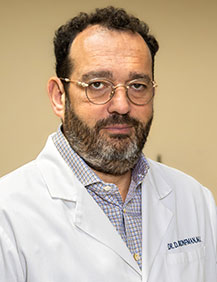
Professional Gynecological Services
- *Same day appointments & walk-ins welcome
- (718) 875-4848
- Book Online

Professional Gynecological Services
The information provided on this site is intended to educate the reader about certain medical conditions and certain possible treatment. It is not a substitute for examination, diagnosis, and medical care provided by a licensed and qualified health care professional. If you believe you, or someone you know suffers from the conditions described herein, please see your health care provider immediately. Do not attempt to treat yourself or anyone else without proper medical supervision.
My experience is always great, staff is very professional and patient. My top front desk person is Erica G who’s always pleasant professional and willing to help. Amy is my go to gynecologist very patient and professional. The place is always clean and the staff is awesome.
Thank you to the staff for making my last few months of pregnancy a wonderful experience, especially Mattie who can remember a face even behind the mask. She always made sure I was comfortable during my prenatal visits.
Recently started my prenatal care and everyone is so friendly. I’ve never experience such a warm vibe walking into a doctors office. The nurses and staff are very detailed and helpful with all my concerns with my high risk pregnancy
Below are frequently asked questions. Choose any of them and reveal the corresponding answer. If you have any questions call us at 718.875.4848.
Trichomoniasis is a common sexually transmitted disease (STD) that affects both women and men, although symptoms are more common in women.
Trichomoniasis is the most common curable STD in young, sexually active women. An estimated 7.4 million new cases occur each year in women and men.
Trichomoniasis is caused by the single-celled protozoan parasite, Trichomonas vaginalis. The vagina is the most common site of infection in women, and the urethra (urine canal) is the most common site of infection in men.
The parasite is sexually transmitted through penis-to-vagina intercourse or vulva-to-vulva (the genital area outside the vagina) contact with an infected partner. Women can acquire the disease from infected men or women, but men usually contract it only from infected women.
Most men with trichomoniasis do not have signs or symptoms; however, some men may temporarily have an irritation inside the penis, mild discharge, or slight burning after urination or ejaculation.
Some women have signs or symptoms of infection which include a frothy, yellow-green vaginal discharge with a strong odor. The infection also may cause discomfort during intercourse and urination, as well as irritation and itching of the female genital area. In rare cases, lower abdominal pain can occur. Symptoms usually appear in women within 5 to 28 days of exposure.
The genital inflammation caused by trichomoniasis can increase a woman’s susceptibility to HIV infection if she is exposed to the virus. Having trichomoniasis may increase the chance that an HIV-infected woman passes HIV to her sex partner(s).
Pregnant women with trichomoniasis may have babies who are born early or with low birth weight (low birth weight is less than 5.5 pounds).
For both men and women, a health care provider must perform a physical examination and laboratory test to diagnose trichomoniasis. The parasite is harder to detect in men than in women. In women, a pelvic examination can reveal small red ulcerations (sores) on the vaginal wall or cervix.
Trichomoniasis can usually be cured with prescription drugs, either metronidazole or tinidazole, given by mouth in a single dose. The symptoms of trichomoniasis in infected men may disappear within a few weeks without treatment. However, an infected man, even a man who has never had symptoms or whose symptoms have stopped, can continue to infect or re-infect a female partner until he has been treated. Therefore, both partners should be treated at the same time to eliminate the parasite. Persons being treated for trichomoniasis should avoid sex until they and their sex partners complete treatment and have no symptoms. Metronidazole can be used by pregnant women.
Having trichomoniasis once does not protect a person from getting it again. Following successful treatment, people can still be susceptible to re-infection.
The surest way to avoid transmission of sexually transmitted diseases is to abstain from sexual contact, or to be in a long-term mutually monogamous relationship with a partner who has been tested and is known to be uninfected.
Latex male condoms, when used consistently and correctly, can reduce the risk of transmission of trichomoniasis.
Any genital symptom such as discharge or burning during urination or an unusual sore or rash should be a signal to stop having sex and to consult a health care provider immediately. A person diagnosed with trichomoniasis (or any other STD) should receive treatment and should notify all recent sex partners so that they can see a health care provider and be treated. This reduces the risk that the sex partners will develop complications from trichomoniasis and reduces the risk that the person with trichomoniasis will become re-infected. Sex should be stopped until the person with trichomoniasis and all of his or her recent partners complete treatment for trichomoniasis and have no symptoms.

Dr. Dmitriy Bronfman, MD, is a board-certified obstetrician-gynecologist with over 25 years of experience providing complete gynecological care. He is an expert in many aspects of modern women's health, including preventative medicine, pelvic pain, minimally invasive and robotic surgery, and general, adolescent, and menopausal gynecology.
Dr. Bronfman graduated magna cum laude from New York University and received his medical degree from Mt. Sinai School of Medicine before completing his residency at Brooklyn Hospital Medical Center. He currently practices at Professional Gynecological Services and is affiliated with Lutheran Medical Center, New York Methodist Hospital, and The Brooklyn Hospital Center. Dr. Bronfman, together with the core physicians of Professional Gynecological Services, implements state-of-the-art diagnostic equipment, the most tested treatments, and the latest surgical technology, all while establishing a welcoming atmosphere in which your questions and concerns will be addressed with the utmost attention.
More about our teamThe Women’s Choice is an ACR Accredited Facility for ultrasound. We provide the highest quality imaging and patient safety, ensuring you receive world-class diagnostic care.
